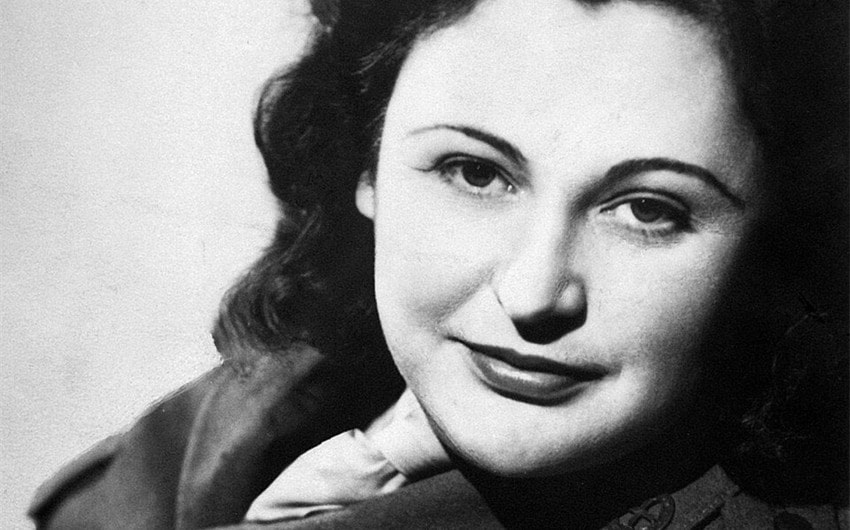Nancy Wake’s Husband: The Untold Story of Henri Fiocca
When people search for Nancy Wake’s husband, they often want to understand the man who stood beside one of the most courageous women of the Second World War. Nancy Wake, famously nicknamed “The White Mouse” by the Gestapo for her ability to evade capture, became a legend for her role in the French Resistance. But behind her fearless actions was her husband, Henri Fiocca, a wealthy French industrialist who loved her deeply and ultimately paid the highest price for that love. Their story is one of passion, sacrifice, and enduring legacy, tied forever to the history of wartime resistance.
Who Was Nancy Wake?
Nancy Grace Augusta Wake was born in Wellington, New Zealand, in 1912, but she grew up in Australia. From an early age, she displayed independence and determination, traits that would later define her wartime heroism. In her youth, she worked as a journalist, traveling widely and writing about world affairs. These travels exposed her to the rising tide of fascism in Europe and gave her firsthand awareness of the dangers that lay ahead.
By the late 1930s, Nancy had settled in France. When Germany invaded in 1940, she witnessed the brutality of the Nazis firsthand. The cruelty she saw convinced her to take action, and she joined the Resistance, quickly becoming one of its most effective operatives. Known for her resourcefulness, courage, and ability to escape the clutches of the Gestapo, Nancy Wake became one of the most wanted women in Europe. Yet behind her fierce resistance stood her husband, Henri Fiocca, whose support and loyalty would prove both inspiring and tragic.
Who Was Nancy Wake’s Husband, Henri Fiocca?
Henri Fiocca was a French industrialist based in Marseille. He was a wealthy businessman, respected in society, and he provided Nancy with a life of comfort and security before the outbreak of the war. Nancy and Henri met in the 1930s, and they fell in love quickly. They married in 1939, just months before Europe was thrown into chaos by the German invasion of Poland.
Henri was described as charming, refined, and generous. He adored Nancy, not only for her beauty but also for her fiery spirit. Their marriage was filled with affection, and Henri supported Nancy’s independence, something not always common in marriages of the time. When the war began and Nancy became deeply involved in resistance activities, Henri remained a constant supporter, even though he knew the risks.
Henri Fiocca’s Role in Nancy Wake’s Resistance Work
As Nancy Wake became more involved in the Resistance, she used her social status as Henri’s wife to her advantage. Together, they were part of a wealthy circle in Marseille, which provided cover for her underground activities. Nancy used her resources and charm to assist the Resistance by helping smuggle messages and people, providing safe houses, and later joining escape networks to help Allied soldiers and Jews flee occupied France.
Henri supported her efforts, even though he knew the danger of their actions. He allowed his wealth and position to be used to protect Nancy and to aid in Resistance work. Although Henri himself was not a frontline fighter like Nancy, his willingness to stand by her and risk the wrath of the Nazis was an act of immense bravery.
The Gestapo eventually became aware of Nancy’s activities, nicknaming her “The White Mouse” because of her ability to elude capture. As the noose tightened around her, it became clear that both she and Henri were in grave danger.
Tragic Loss During WWII
In 1943, Nancy Wake was forced to flee France after her network was compromised. She escaped to Britain, where she continued her work with the Special Operations Executive (SOE). However, Henri chose to remain in France. He believed that staying would protect his family business and possibly divert suspicion from Nancy. Tragically, his decision cost him his life.
The Gestapo arrested Henri Fiocca after Nancy’s escape. Despite brutal interrogation and torture, he refused to betray her or reveal details about her activities. The Nazis executed him later that year. His silence, even in the face of unimaginable suffering, saved countless lives, including Nancy’s, since she was able to continue her Resistance work in Britain and later return to occupied France to lead critical missions.
For Nancy, the news of Henri’s death was devastating. She carried deep grief and guilt, feeling that her involvement in the Resistance had indirectly led to his fate. Yet she also honored his sacrifice, recognizing that he had chosen loyalty and love over self-preservation.
Nancy Wake After Henri Fiocca
Following Henri’s death, Nancy threw herself even more fiercely into her work against the Nazis. With the SOE, she parachuted back into France to help coordinate Resistance groups and prepare for the Allied invasion. She became a leader, organizing sabotage missions, coordinating supply drops, and inspiring fighters. Her bravery earned her several medals, including the George Medal from Britain, the Médaille de la Résistance from France, and the Medal of Freedom from the United States.
Although Nancy remarried later in life, in the 1950s, she never forgot Henri. In interviews, she often spoke about him with tenderness, acknowledging that he had been the love of her life. She described him as a wonderful man who had supported her without hesitation and paid the ultimate price for it.
Her second marriage brought companionship, but she admitted that Henri’s death was a wound that never fully healed. Even in her later years, Nancy emphasized that Henri’s memory remained central to her life story.
Legacy of Their Love Story
The story of Nancy Wake’s husband, Henri Fiocca, is not just a footnote to her life but a vital part of her legacy. His love and loyalty enabled Nancy to pursue her dangerous path in the Resistance. His refusal to betray her under torture stands as an act of heroism equal to her own exploits in the field.
Their love story illustrates the personal costs of war. While Nancy’s courage earned her fame, Henri’s sacrifice represents the countless silent heroes whose names are less remembered but whose contributions were no less profound. Their marriage, though cut tragically short, symbolizes devotion, partnership, and shared bravery in the darkest of times.
Nancy Wake’s extraordinary life cannot be told without acknowledging Henri Fiocca. His role in her story was one of quiet strength and ultimate sacrifice. Together, they remind us that behind every celebrated figure are loved ones whose support and sacrifices make history possible.
Featured Image Source: en.wikipedia.org






